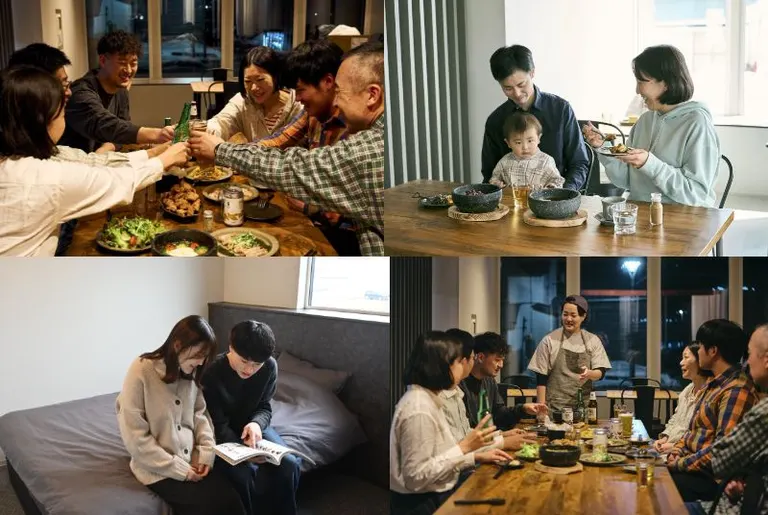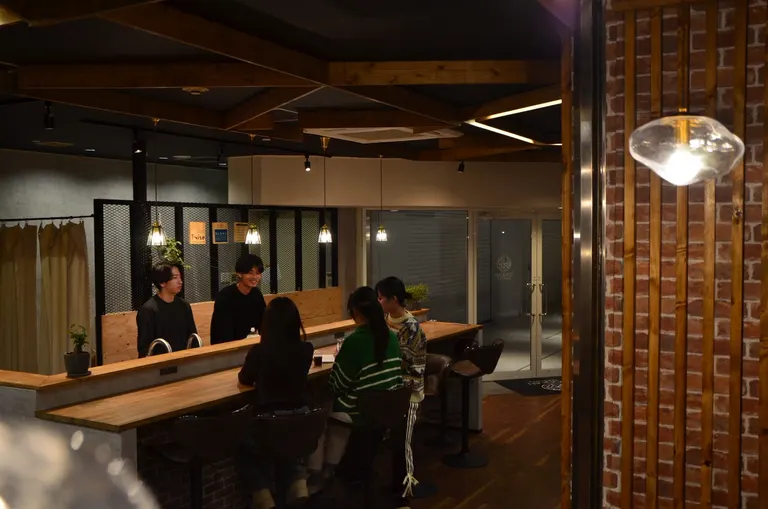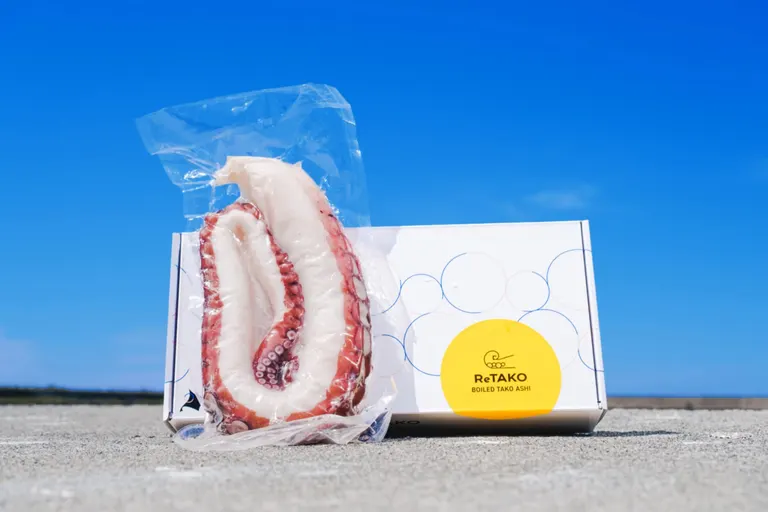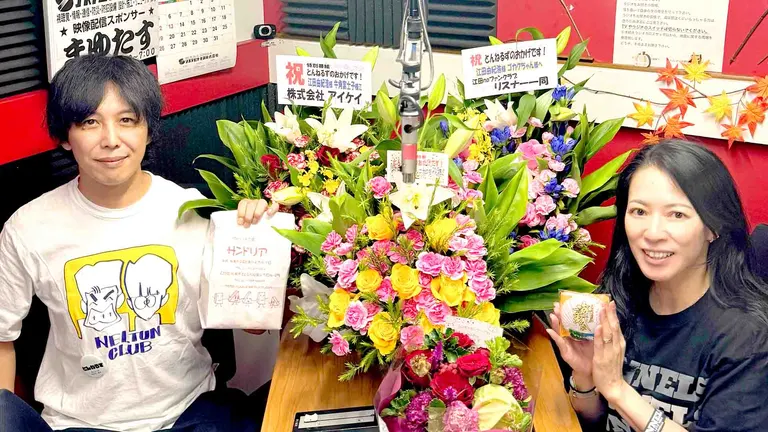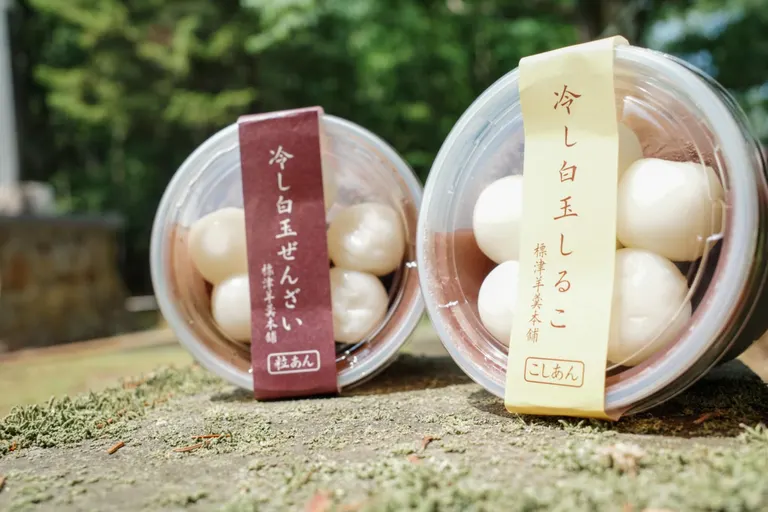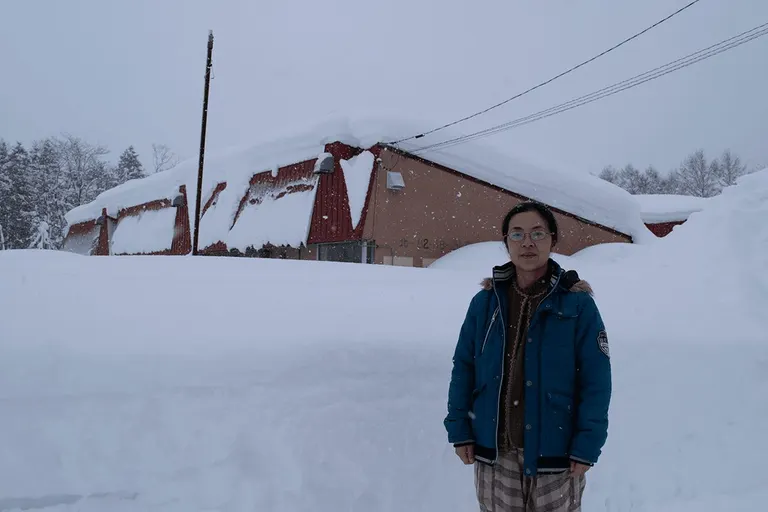
ARTICLES
Moving to depopulated areas and making life easier. Michiko Kurushima talks about her relationships with people
In Iwamizawa City, Hokkaido, there is a village called "Miruto" with a population of about 400 people, 30 minutes by car from Iwamizawa Station. Even in the midst of the recent COVID-19 pandemic, time continues to flow peacefully in Miruto. In the winter of 2021, we spoke with Kurushima Michiko, a publisher in Biruto, in a tenement house surrounded by a pure white landscape.

The beginning of life in Biruto
Kurushima-san moved from Tokyo to the urban area of Iwamizawa in 2011. The reason he decided to move was because he experienced the Great East Japan Earthquake and reexamined his own lifestyle. Kurushima, who was on childcare leave at the time of the earthquake, was able to return to work after the publishing company she was working for at the time agreed to let her work from home. I worked remotely from home for a publishing company for about four years until 2015, when I started freelancing. While living in Iwamizawa, Kurushima wonders, "Is there anything I can do because I live in Hokkaido?" When my friends from Tokyo came to visit me in Hokkaido, I often saw them leave feeling liberated and refreshed. A desire to create an "ecovillage" that would offer people the option of staying in Hokkaido for short or long periods, or even moving there, began to bubble up within him, and in the spring of 2016 he decided to purchase a mountain in the Miyamura district of Iwamizawa City. Wanting to live closer to the mountains, Kurushima was introduced to a vacant house in Biruto, close to the Miyamura district, by an acquaintance, and moved from downtown Iwamizawa to Biruto in 2018.
Thoughts in daily life
"Since moving from Tokyo to Biruto, I've become able to write manuscripts smoothly." Kurushima says that since moving to Biruto, the discomfort she felt while living in Tokyo, such as stress caused by noise and exhaust fumes in the environment and the problem of children on waiting lists, has been largely resolved. Working as an editor surrounded by the smells and sounds of nature has helped me to write manuscripts in a more calm and relaxed state. However, the pain he felt under the state of emergency in 2020 was enormous. "The things I couldn't do and the stress I felt when I was in Tokyo should have been resolved by living in Biruto. However, when the state of emergency was declared, I realized there were fundamental problems that could not be solved by the remaining 20% relocation. Until then, I had been busy working outside, but with the self-restraint on going out, I spent more time at home with my husband and three children, and I felt that mental issues that had not been apparent until now, such as maybe I'm not good at raising children, or maybe I've been neglecting my family, were coming to the surface. Being in an environment where I was no longer dissatisfied with the outside world, both in terms of work and life, allowed me to listen to the voice of my heart, which led me to face problems that had been lurking for a long time. What kind of town is Biruto, surrounded by such nature? "There are no convenience stores or supermarkets in the Biruto area, and government services are not as comprehensive as in the city. It's a place that doesn't appeal to people who want to move to a convenient, liveable town. There are no real estate agencies, and it's difficult to find a house online, so I think one of the characteristics of the area is that there are many people who think like them and don't see these difficulties as problems. We are a gathering of people who feel uncomfortable with the society of mass production and mass consumption, and who are interested in environmental protection, and it often doesn't feel like we've met for the first time. Kurushima-san told us that the number of interesting newcomers to Biruto is increasing by about 3 to 4 people a year. The newcomers help each other and organize events. Biruto is a place where people can open up to each other in a very natural way. I have also had connections with the people of the town through my work. "Thankfully, people in Hokkaido don't just ignore people who want to try new things. They introduced me to people without me asking, and as I went to meet those people as instructed, my connections expanded. For my twice-monthly colocal serialization, I interview local people. By listening to in-depth stories about their upbringing that we don't usually hear, I've become more open with the locals." Click here to see Colocal, where Kurushima-san writes his series. Come to our house! Let's build an eco-village together
Changes in attitudes towards work
Since moving here, my attitude towards work has also changed. "When I was in Tokyo, I was searching for what I should do and how I should live, and I was working desperately to create something. At that time, the work that was coming my way was from my boss, and I felt obligated to accept it, which was painful. But strangely enough, since I started publishing in Biruto, I feel like the things I have to do are coming at me at incredible speed without me even realizing it. I began to think that it was my mission to throw them back at me one by one. Right now, I mostly work on commissioned projects, but from now on, I'd like to gradually increase the proportion of my own publishing activities." Kurushima runs a publishing company called "Michikuru, a forest publisher." The emphasis there is on "handwriting" books and "direct sales" to readers. "In normal book production, there are inevitably creative tasks and non-creative tasks such as transcription and manuscript preparation. By making every step of the process as creative as possible, we believe that the book can be completed with passion. For this reason, at Mori no Shuppansha Michikuru, we create books by hand. I also had doubts about the general distribution method of books. So I sell my books by communicating directly with the people who buy them. I can feel the enthusiasm and words of the people who buy my books, and this increases my motivation to create books.
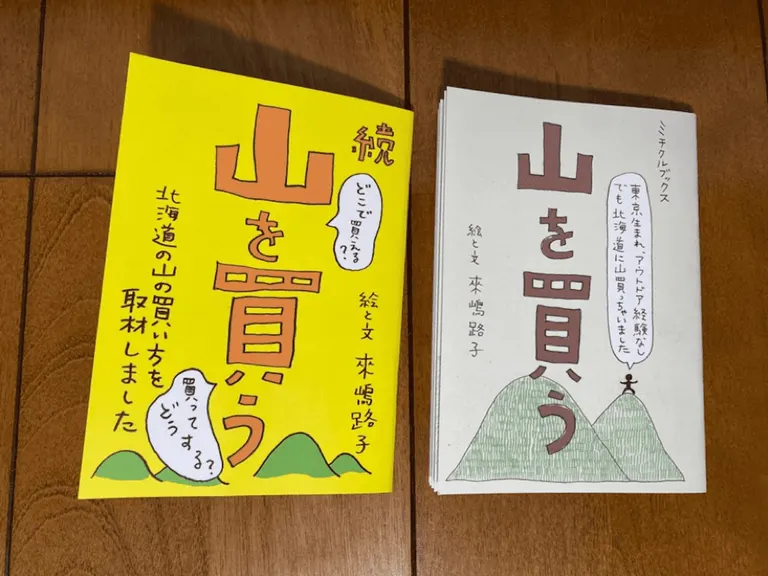
A book by Kurushima. All the text and illustrations are handwritten.
"Inaka no Honne" will be released
Since 2019, Kurushima has been participating in the "Manjisen Project" implemented by Hokkaido University of Education Iwamizawa Campus. This project is an initiative in which students learn about art management in the mountains of Iwamizawa. Until now, events have been held in closed school buildings, but in 2020, due to the COVID-19 pandemic, students were divided into small groups to avoid crowds, interview local people, and create a book. 26 students from the school interviewed people living in the Biruto, Moyo, and Manji areas of Iwamizawa City. Kurushima served as editor. The resulting book, "Inaka no Honne," will be published by Nakanishi Publishing on March 19, 2021. "Moving and changing your environment won't solve the mental problems you have, but I would be happy if people could realize that moving can give them the chance to make new discoveries, ease the external difficulties of life, and help them think more simply. On the other hand, if it helps you think about things more simply, then maybe it's the same no matter where you live. I hope this book will provide some vague hints that, although we are in a suffocating situation due to the COVID-19 pandemic, there may be ways to live resiliently. I think that even people living in cities will find the book full of useful advice on how to keep up their mental health.
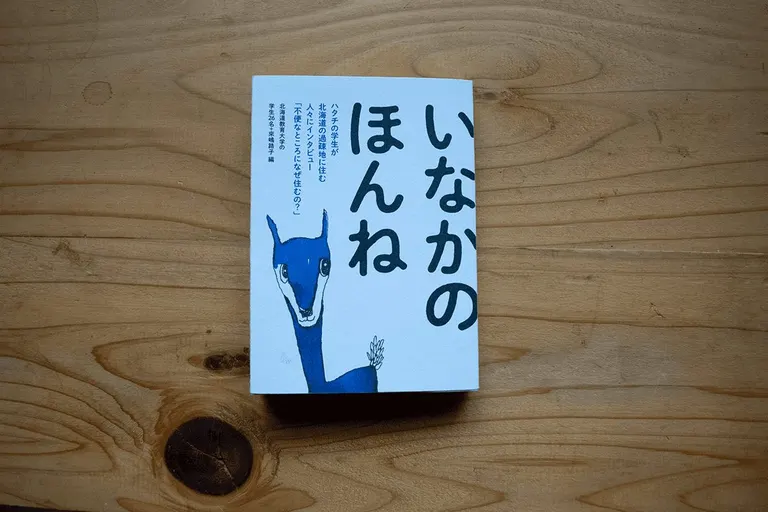
This is a must-read book for anyone feeling lost or trapped in this rapidly changing world. It's a region where interesting people gather, and as you get to know it, you feel like you'll be led to new encounters.






